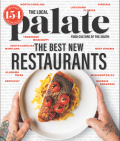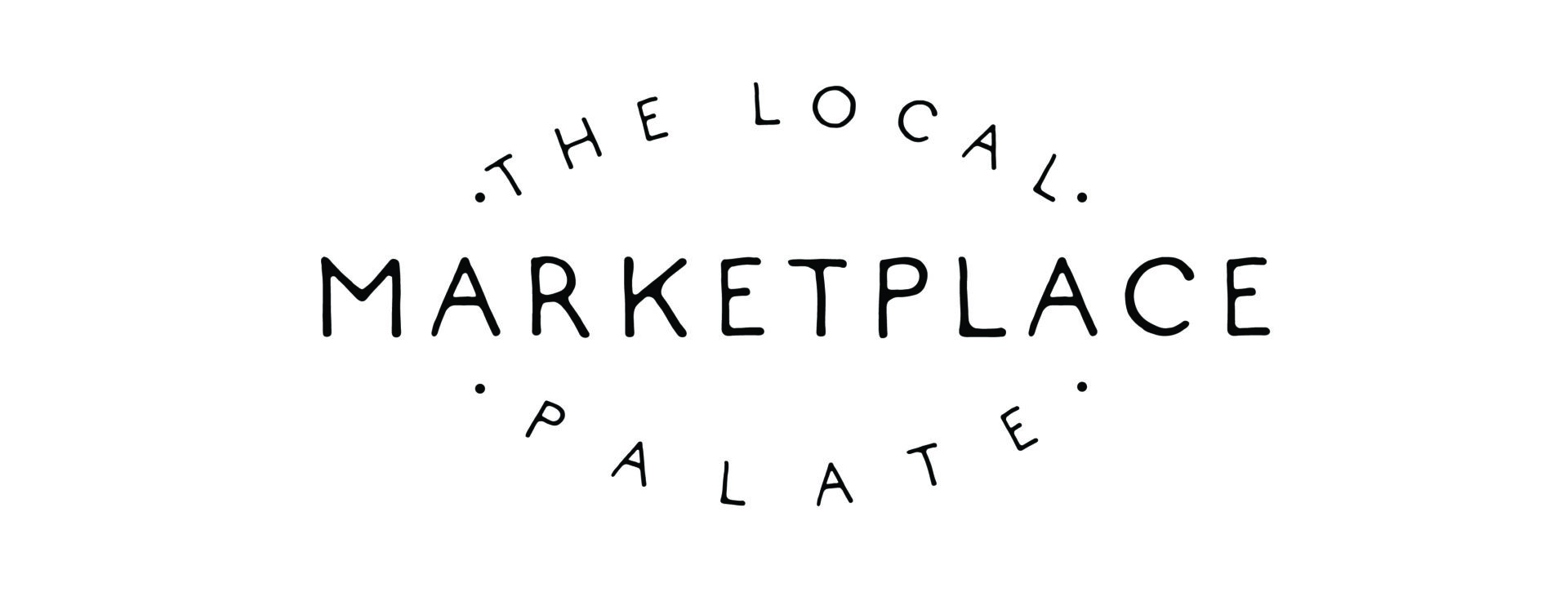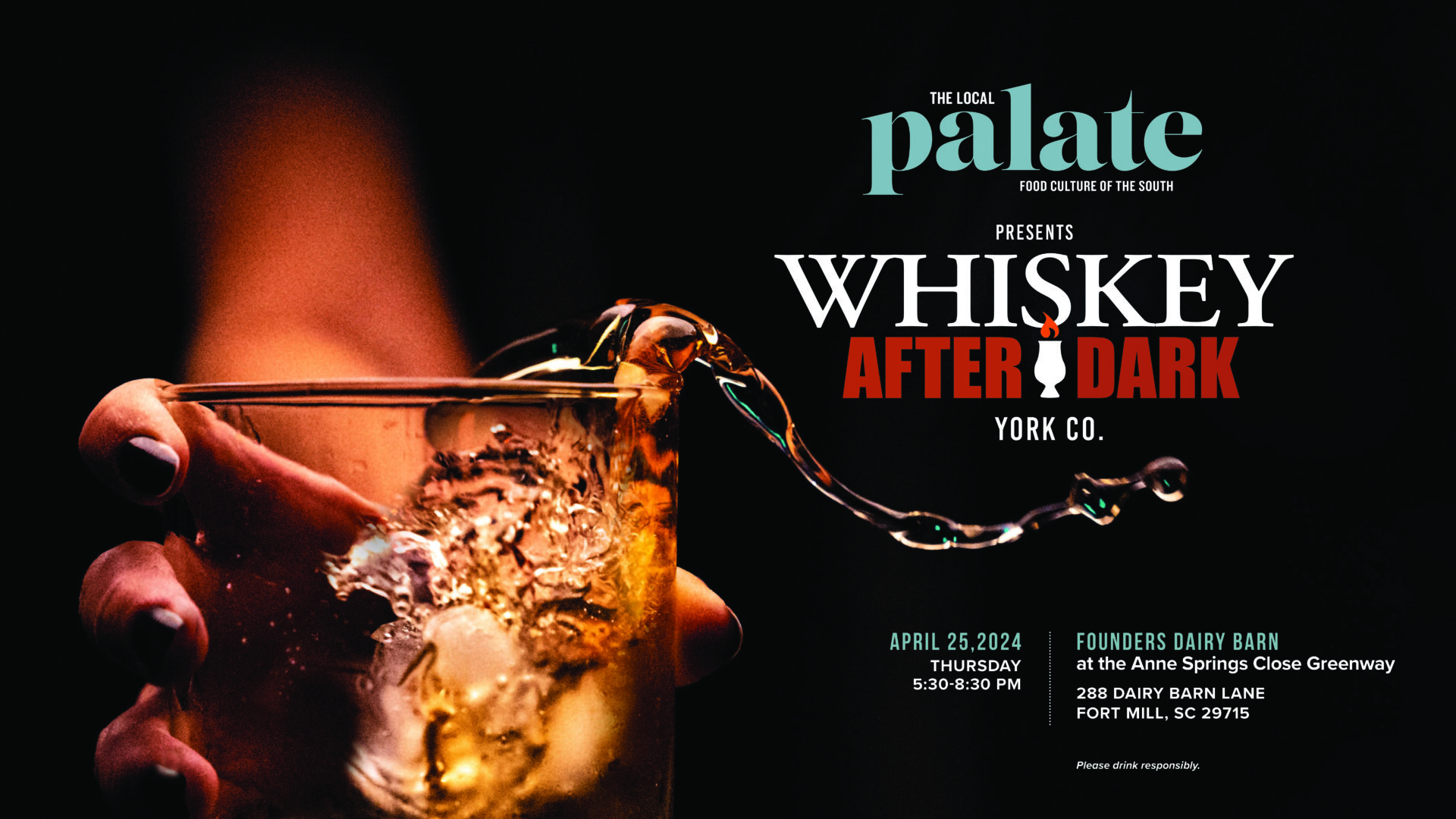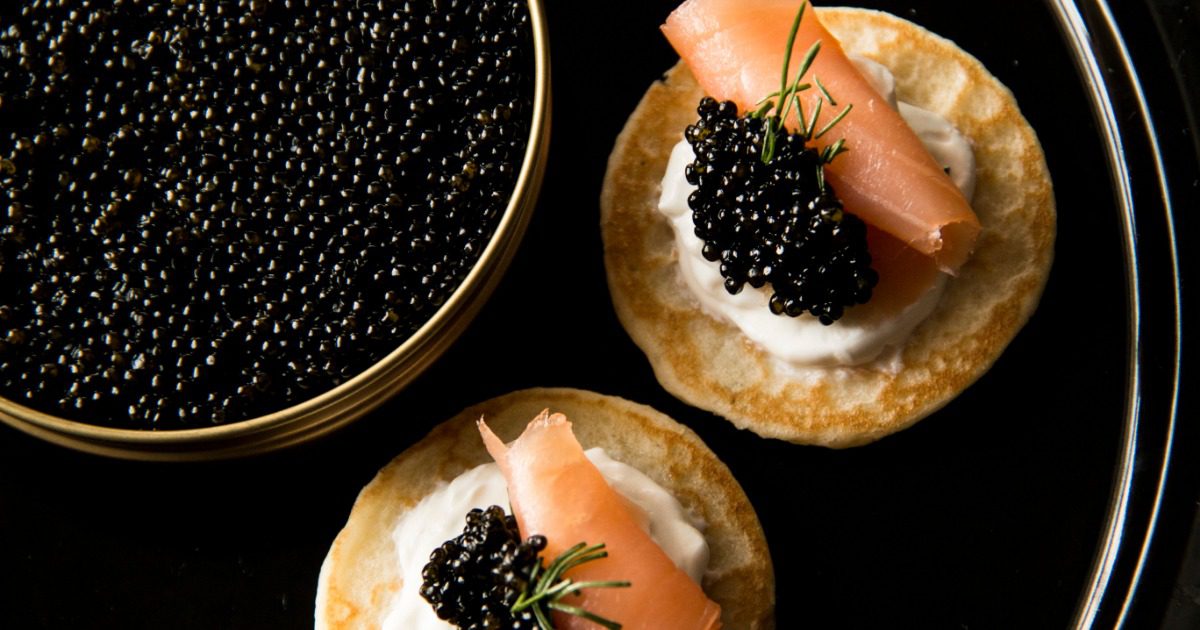A delicacy that calls to mind decadent trays in ornate Russian tea rooms, caviar doesn’t sound all that Southern. But Southern caviar and roe farmers and packers have staked their claim on the market for briny beads, maintaining their integrity and complexity while adding their own Southern flare—resulting in some uniquely regional uses, like a topping for deviled eggs. If you’re looking to add some pizzazz to your festivities, here are a few standouts among the South’s best caviar.
WHERE TO FIND THE SOUTH’S BEST CAVIAR
Image courtesy of Caviar Star
Cajun Caviar, New Orleans
You probably could’ve guessed this caviar’s origin based on its name. Cajun Caviar consists of bowfin roe from the fresh waters of the Atchafalaya Basin in Louisiana. They also offer caviar made with roe from paddlefish, both of which are gathered by local fishermen during a short window from December to February. The deeply black pods are hand-processed and packed using the Russian malossol method—a standard for packing caviar with a salt content of 3 to 5 percent. The spicy version of Cajun Caviar hones the region’s culinary traditions with a blend of bowfin roe and ghost peppers for a balanced and easily distinguishable kick. Available to purchase on the Local Palate Marketplace.
America’s Best Caviar, Grand Rivers, Kentucky
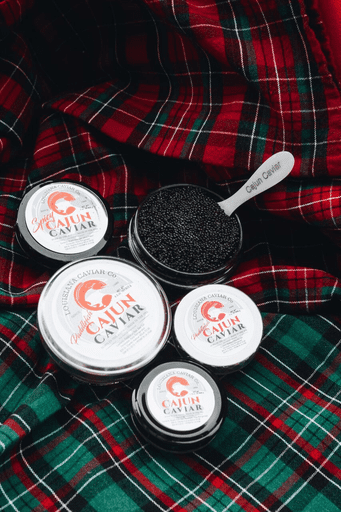
This brand is set at a unique, caviar-rich location. Their proximity to the Mississippi, Ohio, Cumberland, and Tennessee rivers allows their wild-caught fish to be harvested, processed, and packed in an impressively short timeframe. America’s Best Caviar offers a modest selection, from paddlefish to hackleback, depending on the texture and flavor you’re going for—they range from earthy to buttery to nutty.
Shuckman’s, Louisville, Kentucky
Shuckman’s Fish Co. & Smokery sources its paddlefish from three of Kentucky’s freshwater lakes: Lake Barkley, Cumberland Lake, and Kentucky Lake. It’s harvested and salted by professional fishermen before being transported to Shuckman’s facilities. There, it’s rinsed, packed, chilled, and shipped quickly to ensure freshness. Lewis Shuckman, third-generation owner, runs the show. However, he’s currently training his grandson to take over the family business. Pro tip: His favorite way to eat caviar is to serve it over a beaten biscuit with diced egg whites and onions.
CAVIAR COUNTRY IN THE CAROLINAS
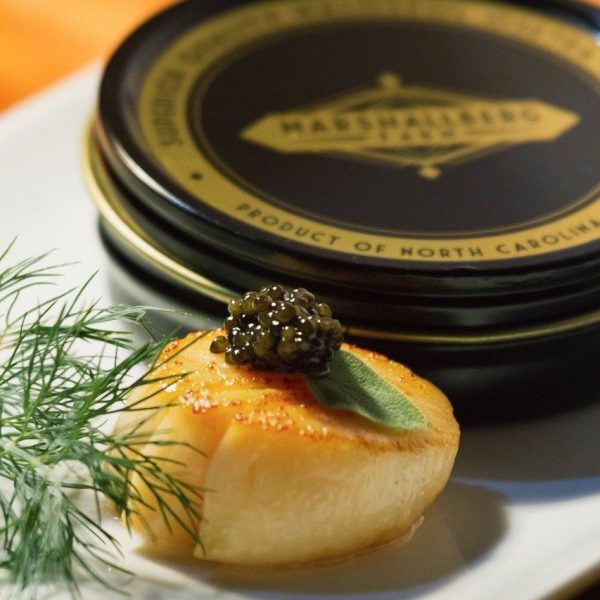
Image courtesy of Marshallberg Farm
Caviar Star, Ocean Isle, North Carolina
Farther north, Caviar Star operates as a one-stop shop for those in search of quality caviar in a variety of sizes and harvested from a variety of species. They’re family-owned and operated and their small team moves nearly ten tons of caviar a year. In addition to sourcing from Mississippi and Missouri, Caviar Star also imports high-quality roe from Europe that’s then packed in their North Carolina facility. You can also find specialty accompaniments including truffles, escargot, and a range of spices to be enjoyed alongside their namesake product. Their wooden caviar boxes and sets are an impressive holiday gift idea.
Marshallberg Farm, Lenoir and Smyrna, North Carolina
The family behind Marshallberg Farm is one of the few producers of Russian sturgeon and osetra caviar in the country. Their facilities in Eastern and Western North Carolina are home to cutting-edge aquaculture technology––and a whole lot of sturgeon. By farming the fish, Marshallberg is working to protect the endangered wild sturgeon population while its environmentally friendly systems mean no hormones, antibiotics, or borax (a form or salt found in some other caviars). Their offerings come in eye-catching tins and range from classic ostera to the decadent gold reserve to a sampler package for the novice to learn or the expert to indulge.
share
trending content
-
New Restaurants in Arkansas
-
Shrimp and Grits: A History
by Erin Byers Murray -
Tea Cakes, A Brief History
by TLP Editors -
Gullah Geechee Home Cooking
by Erin Byers Murray -
A Cajun Christmas Menu
by TLP Editors
More From At the Table
-
High Tea, Southern Style
-
10 Leftover Recipes To Clean Out Your Fridge
-
Country Captain Shrimp and Grits
-
10 Nonalcoholic Drinks for Dry January
-
Our Most Popular Recipes of 2023
